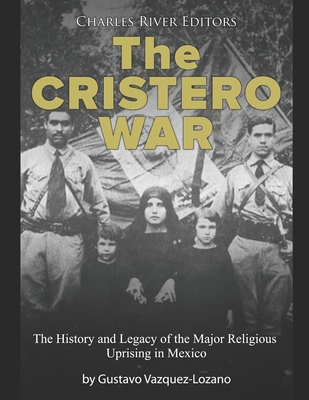*Includes pictures*Includes a bibliography for further reading*Includes a table of contents"Men divided over whether Mexico should reject (its) past or build upon it. And no institution bequeathed by Spain was more firmly embedded in the new nation's life than the Catholic Church, which quickly found itself inextricably involved in nearly every contention that separated Mexicans into hostile factions." - David Bailey, The Cristero RebellionThe Cristero War in Mexico is the last great armed movement in a country that for a hundred years suffered revolution after revolution, in an apparently endless cycle. Ignored for decades, the war was long seen simply as an unwanted corollary of the Mexican Revolution, a kind of anomaly in the official narrative. The Mexican Revolution of 1910 produced an admirable social and agrarian reform, but created an authoritarian state. With no counterweights, the victorious revolutionary class fell into excesses and tried to put religious institutions under totalitarian control, and probably to actually suppress religion. In order to do that, the controversial president Plutarco Elías Calles confiscated church property, had monasteries, temples and confessional schools shut down, deported archbishops, had priests killed, nuns arrested, and declared that the next stage of the Revolution would be the revolution of the minds. This persecution produced one of the most little-known episodes in the history of Mexico, one that, for many years, the state tried to slide under the rug: the Cristero War, also known as the Cristiada, which for several years ravaged the central plateau of the country. The Cristiada began in 1927, and officially it ended two years later, though it boiled beneath the surface for ten more years. It was a rebellion of the poorest who were willing to take up arms to defend their spiritual freedom and fight a government that had declared, in practical terms, religion illegal. Unlike the revolutionary armies of a decade earlier, these armies of the poor were never funded by world powers. The temptation to suppress religious freedom was a constant in triumphant revolutionary governments throughout the 20th century. In Russia the Bolsheviks, in China the hosts of Mao, to mention two examples, believed that religion was a factor of social backwardness that prevented the arrival of the light that was economic and social progress. In Mexico, the triumphant generals were ideologically radicalized and by the 1920s, with t










